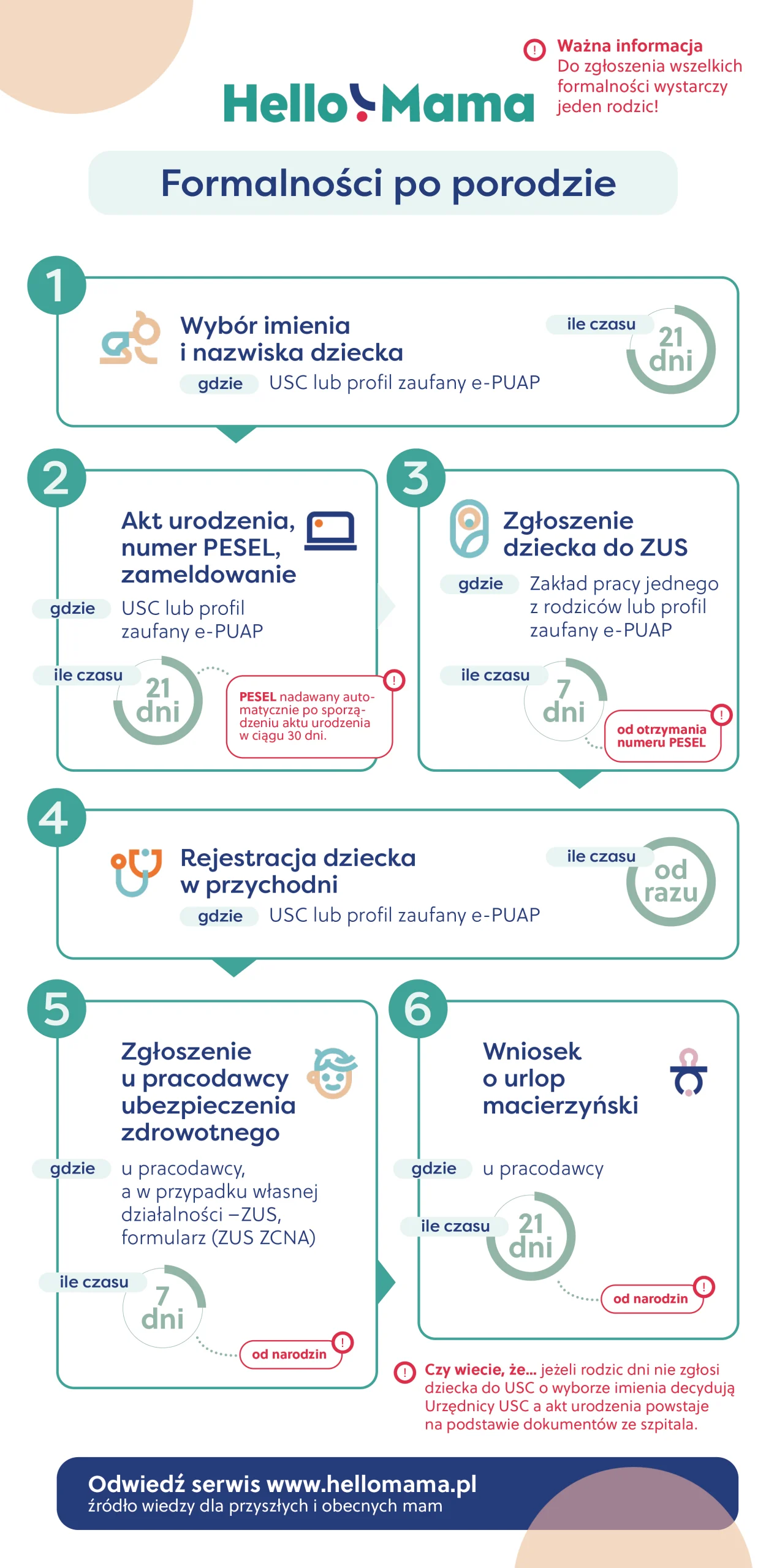Czym jest szok poporodowy?
Spis treści:
Co to jest szok poporodowy
– Nie ma jednej kategorii tego zjawiska. Mówiąc o szoku poporodowym, myślimy często o różnych rzeczach. Od baby blues, czyli uczucia smutku i niepewności związanej z nowymi obowiązkami – co nie jest wcale szokiem, lecz wahaniami nastroju – po znacznie poważniejsze stany, jak psychoza poporodowa i depresja poporodowa – uważa Magdalena Nowicka, psycholog z Poradni Psychologicznej Psyche w Płońsku.
Szoku doświadczają kobiety, dla których poród jest traumą, czyli bardzo trudnym doświadczeniem, wzbudzającym ekstremalnie negatywne emocje związane z zagrożeniem życia i zdrowia. Mogą je wywołać nie tylko komplikacje medyczne, ale także niewłaściwa forma relacji z personelem szpitalnym. Czynnikiem utrudniającym bezstresowe przeżycie porodu jest brak wsparcia ze strony położnej czy lekarza, a także bliskiej osoby towarzyszącej przyszłej mamie.
– Na skutek traumatycznego porodu kobieta może doświadczyć ostrej reakcji na stres, która może się przerodzić w PTSD, czyli Zespół stresu pourazowego. Kobieta doświadcza wówczas ogromnego lęku, boi się, że nie będzie w stanie dobrze zaopiekować się dzieckiem. PTSD odbiera jej zasoby, czuje się wyczerpana, obłożnie chora. W tym wypadku szokiem bywa nazywany rodzaj zamrożenia emocjonalnego – na skutek zaburzenia percepcji rzeczywistości matka ma wrażenie, że nic nie czuje i nie potrafi zmienić tej sytuacji – dodaje nasza ekspertka.
W przypadku PTSD matka nie ma wrogiego stosunku do dziecka. Nie odrzuca go, ale też trudno jej wzbudzić w sobie ciepłe uczucia do maleństwa. Zaburzenie takie najczęściej pojawia się po pierwszym porodzie; przy kolejnych dzieciach mamy lepiej radzą sobie z natłokiem obowiązków i macierzyńskimi niepokojami.
Jeśli pojawiają się wrogie zamiary wobec noworodka, mamy prawdopodobnie do czynienia z psychozą poporodową. Czasem właśnie to zaburzenie nazywane jest szokiem poporodowym.
– Psychoza może być reakcją na ekstremalny stres – wyjaśnia psycholog Magdalena Nowicka. – Towarzyszą jej urojenia, obawa, że ktoś nas prześladuje, chce zrobić nam krzywdę. Zdarza się niestety, że w roli prześladowcy matka obsadza właśnie dziecko. Może wtedy pojawić się myśl, że skoro jest ono zagrożeniem, może lepiej byłoby je zabić? Na szczęście są to bardzo rzadkie przypadki.
Szok poporodowy a depresja
Zdarza się, że określenie „szok poporodowy” używane jest jako synonim zaburzenia nazywanego depresją poporodową.
– Depresja jest to choroba, która uwidacznia się w trudnych momentach naszego życia, a narodziny dziecka są trudnym momentem, nawet wówczas, gdy odbierane są jako wielkie szczęście. Życie całej rodziny przewraca się wtedy „do góry nogami” – mówi Magdalena Nowicka.
Lekarze upatrują przyczyn depresji poporodowej także w zaburzeniach gospodarki hormonalnej, jakie zachodzą w ciele kobiety. Mogą się one objawiać gwałtownym spadkiem nastroju, brakiem wiary we własne siły, lękiem związanym z podejmowaniem zadań opiekuńczych. Jest to poważne zaburzenie psychiczne, któremu mogą towarzyszyć napady lęku, ataki paniki, a nawet myśli samobójcze. Depresja poporodowa może wystąpić również u kobiety po prawidłowym porodzie, przebytym bez komplikacji. Nastrój nie obniża się wówczas bezpośrednio po urodzeniu dziecka, a jej przebieg nie jest tak ostry i dynamiczny jak w przypadku negatywnej reakcji na stres.
Przy depresji poporodowej mówi się także o pewnych skłonnościach genetycznych do tego rodzaju zaburzenia. Prawdopodobieństwo jego wystąpienia jest tym większe, im gorszy był stan psychiczny kobiety w przeszłości, również w okresie dojrzewania. Czynnikiem sprzyjającym depresji mogą też być nieprzychylne nastawienie bliskich, brak wsparcia w najbliższym otoczeniu, trudna relacja z matką czy teściową, przemoc ze strony partnera.
Czym jeszcze różni się szok poporodowy od depresji? Większe prawdopodobieństwo zachorowania zachodzi, gdy kobieta doświadczyła porodu jako traumy.

Polecamy
Depresja poporodowa, czyli więcej niż poporodowy smutek
Depresja poporodowa. Dawniej traktowana jako fanaberia, dziś uznana za jednostkę chorobową. Szacuje się, że co piąta kobieta po porodzie zmaga się z silnymi emocjami, które przybierają niebezpieczną postać depresji poporodowej. Choroba, o której wiele matek milczy. Nieleczona może prowadzić do tragicznych skutków.
Objawy szoku poporodowego
Objawy są różne, zależności od tego, co oznacza dla nas to pojęcie. Jeśli szok rozumiemy jako reakcję na stres, będą to przede wszystkim ogromny lęk, paraliż działania, obawy związanie z przyszłością swoją i dziecka. Objawy psychozy poporodowej to natomiast m.in. nieuzasadniona podejrzliwość wobec innych osób, stany lękowe, zaburzenia snu i łaknienia, omamy słuchowe (np. „głosy” namawiające do zabicia dziecka lub samobójstwa), urojenia.
Objawy szoku poporodowego rozumianego jako depresja poporodowa to smutek, niechęć do podejmowania aktywności związanych z rolą matki, niepewność, poczucie bezsilności.
Ile trwa szok poporodowy
To zależy od rodzaju zaburzenia, którego doświadcza świeżo upieczona mama. O ile ostra reakcja na stres trwa od paru godzin do kilku dni po porodzie (choć zdarzają się przypadki, że przeciąga się do miesiąca), o tyle psychoza i depresja poporodowa rozpoczynające się najczęściej dopiero po kilku dniach, a niekiedy nawet tygodniach po porodzie mogą trwać bardzo długo, nawet parę miesięcy. Czas trwania nieprzyjemnych objawów zależy od stanu matki, a także rodzaju zastosowanej terapii.
Jak leczyć szok poporodowy
Postępowanie terapeutyczne zależy od tego, jak objawia się szok poporodowy. Jeśli jest reakcją na stres, nie wymaga leczenie farmakologicznego. Czasem, aby odzyskać równowagę psychiczną, wystarczy wsparcie najbliższych i odciążenie matki od nadmiaru obowiązków. Pomocne może też być spotkanie z terapeutą.
– Czasem wystarczą dwa–trzy spotkania, pierwsze jeszcze w szpitalu położniczym – mówi Magdalena Nowicka. – Interwent kryzysowy nie musi być psychologiem ani lekarzem, po prostu rozmawia z pacjentką, która potrzebuje wysłuchania i zrozumienia. Za rzadko mówi się dziś, że poród to wydarzenie stresujące nie tylko z powodu bólu, negatywna reakcja kobiety jest często bagatelizowana. Interwencja kryzysowa mogłaby ten stres złagodzić. Warto dodać, że spotkania takie mogą także odbywać się on-line.
A jak leczyć szok poporodowy, gdy mamy do czynienia z psychozą poporodową lub depresją? Konieczna jest wtedy wizyta u psychiatry.
– W depresji poporodowej terapia farmakologiczna jest złym koniecznym – przekonuje Magdalena Nowicka. – Pula leków, które można przyjmować w czasie karmienia piersią, jest niestety ograniczona. W przypadku ostrej postaci choroby, gdy konieczne są leki przeciwpsychotyczne, dobro matki jest najważniejsze.
Dużym wsparciem dla kobiety w pierwszych dniach po porodzie może być położna. Kobiety wykonujące ten zawód są coraz lepiej przeszkolone, warto więc w czasie wizyty patronażowej, która odbywa się kilka dni po porodzie, zgłosić wszelkie wątpliwości związane z własnym samopoczuciem czy opieką nad dzieckiem.
Co musisz wiedzieć o formalnościach po porodzie?






































